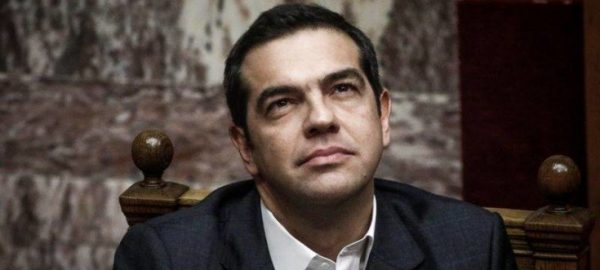A job well done in Brussels — now the battle moves to Athens. Alexis Tsipras, Greece’s left-wing Prime Minister, was forced to a compromise with the country’s creditors, agreeing to some major departures from his election pledges, and now he has to persuade his own party that the deal is not throwing the government off its declared anti-austerity course. But at the same time he is coming up against the pragmatic challenges of running an ailing state’s finances.
Under the threat of capital controls by the European Central Bank, Tsipras accepted an extension of the country’s European bailout programme, including a reviewing procedure by the creditors’ representatives, pretty much the same as under previous agreements.
The government has been trying hard to spin the deal as the end of all pre-existing arrangements and as a national victory that would end austerity policies Europe-wide. It seems the hardest people to persuade are inside SYRIZA, Tsipras’s own radical left-wing party, which is the governing coalition’s major partner.
In what turned to a tempestuous meeting, one out of three members of the SYRIZA parliamentary party are reported to have voiced their objection to the deal — among them a senior cabinet minister and the Speaker of the Parliament; hence, it comes as no surprise that Tsipras appears to be considering dodging Parliament and imposing the deal without having to secure the approval of his own MPs; but there is discord withing the cabinet even concerning this politically-loaded legality.
The main task for the 40-year-old PM is to persuade some of the radicals that the Brussels deal is a mere tactical move
The main task for the 40-year-old PM is to persuade some of the radicals that the Brussels deal is a mere tactical move that will not derail the party from its ideological course, namely an overthrow of capitalist socio-economic structures in the quest for a socialist future. This critique was officially recorded by no less than SYRIZA’s economic policy chief, and that serves as a poignant indication that Tsipras is indeed facing a tall order.
Analysts say the extra funds that the government will need to secure until June are is excess of €20 billion.
Meanwhile, the Greek government is coming to terms with some dire fiscal realities. Yanis Varoufakis will soon have to prove that, besides being a good communicator, he can also deliver as a Finance Minister and tackle the lack of cash that appears to be an immediate threat. He is reported to be depending on ECB help to repay an IMF loan next month and avoid a credit event that would shake Greece’s credibility for good, while analysts say the extra funds that the government will need to secure until June are is excess of €20 billion.
So, Tsipras has a explosive mix in his hands: he has to provide for the state’s cashflow needs by persuading Greece’s creditors that he is leading the country to fiscal virtue and structural reforms; while convincing his own party that this course is a shortcut to socialism. He may be missing his time as opposition leader…





![Krugman: If Tsipras accepts the dictates of the Troika, how is he different? [vid] Krugman: If Tsipras accepts the dictates of the Troika, how is he different? [vid]](http://serpico.gr/wp-content/uploads/2018/07/paul_krugman-2.png)